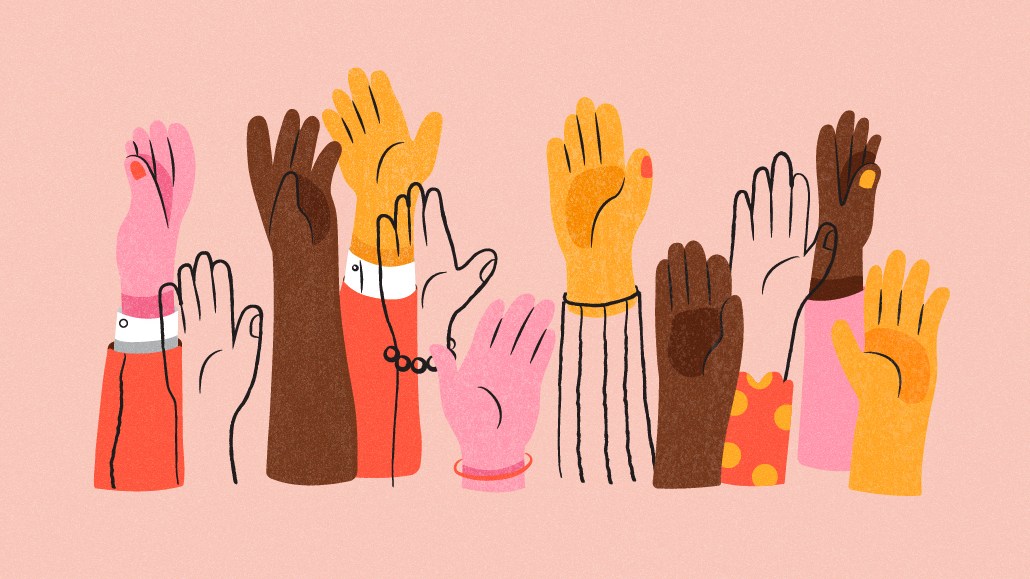Secure your place at the Digiday Publishing Summit in Vail, March 23-25

As a Digiday+ member, you were able to access this article early through the Digiday+ Story Preview email. See other exclusives or manage your account.This article was provided as an exclusive preview for Digiday+ members, who were able to access it early. Check out the other features included with Digiday+ to help you stay ahead
As some brands face pressure from conservative activists to curb their diversity and equity efforts, Riot Games is openly approaching its partnership with the nonprofit organization DonorsChoose as a social impact and DEI initiative.
Today, Sept. 4, Riot and DonorsChoose — which helps public school teachers solicit and collect donations for classroom materials — announced a one-year renewal of their official partnership, which kicked off last year. Riot has guaranteed that it will match up to $200,000 in donations to the platform, with a focus on allowing teachers to step up their gaming and esports projects in the 2024-2025 school year.
The renewed partnership between Riot Games and DonorsChoose will run for the coming school year, with Riot guaranteeing a match of up to $3,000 for every individual participating teacher. Although DonorsChoose is not inherently a diversity- and equity-focused platform, Riot views its partnership with the nonprofit as a DEI initiative due to its focus on expanding access to gaming and esports within lower-income classrooms that might not otherwise have dedicated gaming equipment.
“Last year, I submitted a proposal for funding to DonorsChoose because I knew we needed to update a lot of our equipment since it was fairly old and outdated,” said Austin Colberg, the assistant principal and esports director at Los Angeles’ Alliance Smidt Technology High School, who has worked with DonorsChoose since 2010. “I asked for funding for a new CPU and some peripherals, which are really helpful because these students wouldn’t have access to them otherwise.”
Riot Games senior director of social impact Jeffrey Burrell told Digiday that 79 percent of the DonorsChoose projects Riot had supported over the past year were in these schools, which DonorsChoose calls “equity focused schools.”
“When we think about who comes to an external platform from their own district and school and says, ‘I need more stuff,’ it’s usually teachers of color, who are teaching in environments where a majority of students are students of color or come from low-income households, and then also any teacher teaching in an environment where the schools is underfunded,” said DonorsChoose svp of equity and impact Kristina “Steen” Joye Lyles.
To illustrate the impact of the partnership, Lyles cited the example of a North Carolina esports team whose students placed second at a “Super Smash Bros.” tournament after receiving support from DonorsChoose.
“I think it’s the best case scenario for Riot Games to say, ‘we’re going to stand firm and we’re going to put our foot on the gas when it comes to DEI work,” Lyles said. “We’re going to support these classrooms — and we’re going to celebrate that there’s a group of students who got second place and beat out 190 students, and they could not do that without access to these resources.”
For Riot, the renewal is a vote of confidence in the importance of corporate DEI work, despite growing cultural backlash against such initiatives from some corners. After all, corporate diversity and equity programs have become a cultural battleground in 2024. After spreading like wildfire following the George Floyd murder and protests in 2020, DEI programs have fallen away significantly this year, in part because of lawsuits and public pressure from right-wing political figures.
In recent months, brands such as Harley-Davidson, Ford and Jack Daniels have distanced themselves from DEI by reducing funding for programs or trimming diversity and equity staff.
“Some companies think of diversity or sustainability initiatives as a ‘nice to have,’” said Andrea Ostrovsky, CEO of Color Creative, a Seattle-based creative agency. “And as budgets have tightened and the economy has shifted and companies are looking for ways to be more efficient with their dollars, I think some have seen this as a place to pull back from for financial reasons.”
Thus far, neither political pushback nor economic headwinds have deterred Riot Games from broadcasting its DEI efforts on its official website. Although the company is aware of the shifting tides against DEI in some areas, it believes pulling away from its diversity efforts would be a mistake, given the diverse global audience of Riot titles such as “League of Legends” and “Valorant.”
“Personally, I think what’s happening across industries is pretty disheartening, and ultimately, I think that’s what will hurt us in the longer run. My view is five to seven years out: I want to help players today, but more importantly, how do I help them get where they want to go?” Burrell said. “If we want a more diverse industry, new game designers with brilliant ideas can come from everywhere — so we’ve got to make sure that we’re representing and giving people opportunities to engage with the games industry as a meaningful life pursuit.”
More in Marketing

‘The conversation has shifted’: The CFO moved upstream. Now agencies have to as well
One interesting side effect of marketing coming under greater scrutiny in the boardroom: CFOs are working more closely with agencies than ever before.

Why one brand reimbursed $10,000 to customers who paid its ‘Trump Tariff Surcharge’ last year
Sexual wellness company Dame is one of the first brands to proactively return money tied to President Donald Trump’s now-invalidated tariffs.

WTF is Meta’s Manus tool?
Meta added a new agentic AI tool to its Ads Manager in February. Buyers have been cautiously probing its potential use cases.








